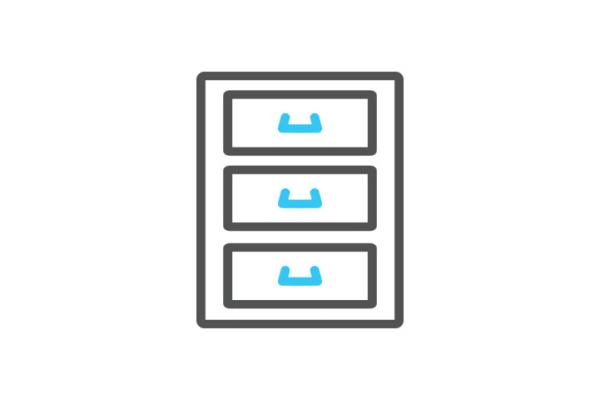HERA’s responsibility is to ensure that the EU and Member States are ready to act in the face of cross-border health threats, and its mandate covers both the strengthening of preparedness in advance of future emergencies and the implementation of a swift and efficient response once crisis hits.
When a public health emergency is recognised at EU level and the Emergency Framework has been activated by the Council, HERA shifts into the crisis phase, an operational mode that enables swift decision-making and the activation of emergency measures. During the crisis phase, HERA will rely on its anticipatory overall management system and deploy it in the context of the EU’s Emergency Framework Regulation (EFR).
Key actions in the crisis phase
As established in the Council Regulation on a framework of measures for ensuring the supply of crisis-relevant medical countermeasures adopted on 24 October 2022, the Council may, upon the proposal of the Commission, activate the emergency framework that serves as the legal basis for crisis activities regarding medical countermeasures during a health crisis. The activation of the EFR in response to a threat also marks the transition of HERA from preparedness into the crisis phase.
A key part of HERA’s role under the EFR includes overseeing the effective deployment of all intelligence and capacities built in the preparedness phase, in addition to implementing targeted response actions to create an efficient pipeline for crisis-relevant medical countermeasures (MCMs). Depending on the nature and severity of the crisis, the Council activation of the framework specifies which of the following emergency measures should be implemented as appropriate to the economic situation and the need to protect public health.
Setting up a Health Crisis Board
Given the distribution of responsibilities between the EU and national levels, it is of vital importance that the Member States’ and the Commission’s approaches to relevant medical countermeasures are closely aligned when faced with a cross-border health crisis. The EFR therefore foresees the establishment of the Health Crisis Board to coordinate urgent action and ensure a robust, consistent, and well-integrated response throughout the Union.
The Health Crisis Board will be composed of the European Commission and one representative from each Member State, and act by a two-thirds majority to ensure smooth deliberation and decision-making. It will be actively supported by DG HERA’s preparedness and response planning, which will provide members with:
- an assessment for the purpose of activating other emergency measures pursuant to the EFR
- propose the rules of procedure
- draft negotiating mandates and procedural rules for procurements
- provide relevant information for the establishment of an inventory of crisis-relevant medical countermeasure production and production facilities.
Other EU institutions and agencies should also be closely involved in the work of the Board, providing relevant expertise and guidance where appropriate.
Ensuring supply of crisis-relevant medical countermeasures and raw materials
At the beginning of a recognised public health emergency, HERA will quickly identify and establish a list of key medical countermeasures needed to tackle the threat and closely monitor the supply and demand of these products. This list will serve as a guide for response actions to prevent shortages, including:
- quantifying MCM needs in accordance with variables such as transmission dynamics, population demographics and geographical distribution to ensure that critical resources reach the MS and regions with the highest predicted need;
- collaboration with key stakeholders such as medical experts and public health officials to refine estimates of potential clinical severity and best MCM utilisation patterns;
- monitoring supply and manufacturing chains to identify potential bottlenecks and disruption risks, taking into account production capacity, throughput time, supply chain structure and distribution logistics to enable efficient planning and priorisation of pharmaceutical and non-pharmaceutical interventions.
The list will include both a wide range of finished products (authorised and unauthorised medicinal products, medical devices, Personal Protective Equipment (PPE) and diagnostics) as well as the critical raw materials required for their production. All estimates will be adjusted and repeated as the situation evolves, ensuring a dynamic and responsive approach to addressing threat specific MCM needs.
Emergency procurement, purchase and manufacturing of crisis-relevant medical countermeasures and raw materials
Once the EFR has been activated, the Commission can expedite standard procurement mechanisms in order to deliver crisis-relevant medical countermeasures (MCMs) to citizens as swiftly as possible.
When a public health emergency has been formally recognised, HERA will compile an inventory of crisis-relevant MCM production facilities and measures, to ensure that production availability and supply in the EU can be rapidly increased. Additionally, HERA will undertake emergency procurement of critical medical countermeasures - such as vaccines, therapeutics, and medical devices- utilising various procurement instruments, including acting on behalf of the Member-States as a central purchasing body. These include:
| Mechanism | Definition |
|---|---|
| Central procurement | Procurement by the Commission on behalf of EU Member States on the basis of an agreement between the Commission and the Member States. The Commission establishes a contract under which EU Member States order and purchase a given medical counter-measure. This is a mechanism that can be activated only in the crisis phase, is supported by EU budget, and exclusive to the Member States. |
| Wholesale procurement | Procurement by the Commission acting as wholesaler by buying, (stocking) and reselling or donating supplies and services, including rentals, for the benefit of Member States or partner organisations selected by the Commission. |
| Joint procurement | Procurement by the Commission on behalf of the participating countries on the basis of a joint procurement agreement signed by all parties. The Commission establishes a Joint Procurement Framework contract under which participating countries order and purchase a given medical countermeasure. As of September 2024, the JPA has been signed by 38 countries, including all EU and EEA countries and most candidate countries. |
HERA will also coordinate the implementation and activation of existing contracts (e.g. pandemic influenza preparedness contracts) by facilitating the information exchange between the Member States and pharmaceutical companies, including about the re-allocation and donation of the MCMs between the Member-States.
Activation of EU FAB facilities
In the crisis phase, the EU FAB network can be activated in order to draw on ever-warm manufacturing capacities reserved in advance during the preparation phase, increasing the speed and volume at which vaccines reach citizens.
Launched in June 2023, the EU FAB network is a group of vaccine manufacturers in the EU with sufficient and agile manufacturing capacities that will be able to quickly produce essential vaccines in the event of a health emergency – ensuring that key industrial capacities are secured and operational when crisis hits.
The objective of EU FAB network is to:
- Close the gap between manufacturing and scaling up of vaccine production
- Ensure the capacity of the industry to produce life-saving medicines
- Reserve manufacturing capacities
- Obtain a priority right for manufacturing of vaccines in case of a future public health emergency
EU FAB members are responsible for ensuring facilities, staff and supply chains are maintained to enable them to quickly start manufacturing at the request of the Commission. It will have the capacity to produce up to 325 million vaccines per year, within the EU. The network, comprising vaccine producers in the EU, will cover manufacturing capacities for mRNA, vector-based and protein-based vaccines.
Activation of emergency research and innovation plans
In a crisis scenario, the Commission may activate an EU emergency Research and Innovation plan, based on similar plans prepared by the Member States on the national level, to accelerate activities such as:
- development and validation of critical vaccines, antivirals, and diagnostics;
- monitoring and characterization of threat variants using whole genome sequencing;
- identification and testing of MCMs and correlates of protection (e.g. one-dose, two-does strategy) for effectiveness.
The use of Union-wide clinical trial networks and data-sharing platforms may also be implemented to consolidate research efforts and ensure a cohesive and equitable response.
Activation of emergency funding
Under the EFR, emergency funding may be activated to finance expenditure necessary to address the public health emergency according to the requirements established in the Regulation (EU) 2016/369 on the provision of emergency support within the EU.
Regulation (EU) 2016/369 provides for a flexible framework for emergency funding that allows for the provision of financial support that cannot be implemented through the existing spending programmes. It is a tool that can be made available if there is a recognition of a public health emergency at Union level to the extent that is appropriate to the economic situation, taking into account the need to ensure a high level of protection of human health.




